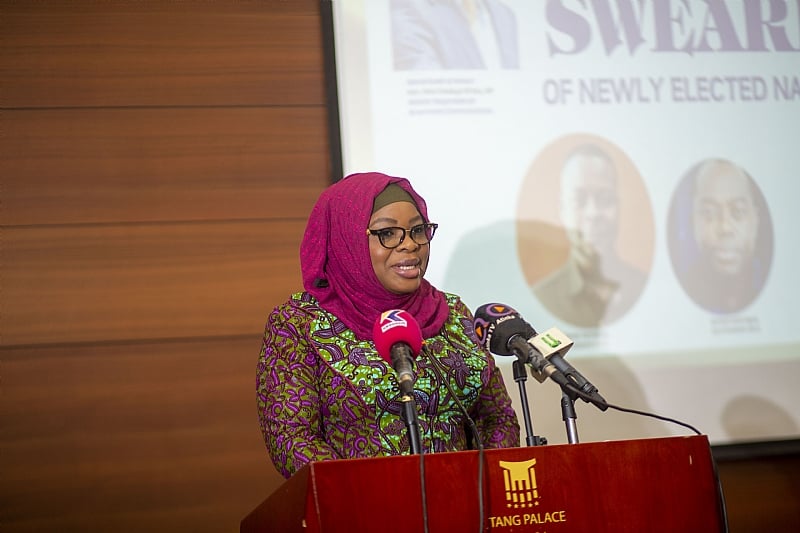President John Dramani Mahama, through his representative, Ms. Shamima Muslim, reaffirmed his administration’s unwavering commitment to upholding press freedom and ensuring the safety and well-being of journalists throughout Ghana. This commitment underscores the vital role the media plays in a functioning democracy and the recognition that a free press is essential for good governance. The President’s message, delivered at the swearing-in ceremony of the Private Newspapers and Online News Publishers Association of Ghana (PRINPAG), emphasized the symbiotic relationship between the government and the media, asserting that neither can effectively function without the other. Past incidents, such as the swift disciplinary action taken against a police officer who assaulted a journalist, serve as testament to this commitment. Furthermore, the ongoing investigation into the unsolved murder of investigative journalist Ahmed Suale remains a high priority, demonstrating the President’s resolve to ensure justice is served and protect journalists from harm.
Central to the President’s commitment to press freedom is the promise to fully implement the Right to Information law. This legislation is intended to empower the media by granting access to information necessary for holding power accountable and fostering transparency. This access is crucial for journalists to effectively perform their duties and inform the public, thereby strengthening the democratic process. The government’s recognition of the evolving media landscape is evident in the acknowledgment and support for PRINPAG’s inclusion of bloggers within its membership. This move is seen as a positive step towards greater regulation and adherence to ethical standards within the online media sphere. The government also signaled its intention to address the spread of misinformation and hate speech through a proposed bill, recognizing the potential harm these pose to society.
The newly inducted President of PRINPAG, David Sitsofe Tamakloe, highlighted the critical issue of poor remuneration for journalists. He decried the practice of offering journalists paltry sums, likening it to treating them as “hungry puppies,” and pledged to advocate for improved working conditions and better compensation. This advocacy will include pursuing opportunities for professional development and training through scholarships, aimed at elevating journalism to a respected and well-compensated profession. Tamakloe’s commitment to improving the welfare of journalists is crucial for ensuring the sustainability and integrity of the profession.
Tamakloe’s predecessor, Edwin Arthur, reflected on the achievements of his tenure, including securing a secretariat and office furnishings with support from corporate sponsors. This infrastructure development is significant for the growth and stability of PRINPAG, providing a physical space and resources for the association to carry out its functions effectively. Arthur’s parting advice to the new leadership emphasized the importance of maintaining impartiality and avoiding political bias. He cautioned that aligning with any particular political faction would undermine the credibility and independence of the association.
The swearing-in ceremony was attended by prominent figures from the media, government, and civil society, including former PRINPAG President Gina Ama Blay, Economic and Organised Crime Office (EOCO) boss Raymond Archer, and National Media Commission Chairperson Prof. Akua Opokua Britwum, who presided over the event. The presence of these individuals underscores the significance of the occasion and the collective commitment to strengthening the media landscape in Ghana. The event served as a platform to reaffirm the importance of a free and vibrant press in a democratic society and to address the challenges facing journalists in Ghana.
The confluence of these commitments—governmental support for press freedom, advocacy for improved journalist welfare, and the emphasis on ethical standards—indicates a positive trajectory for the media landscape in Ghana. By fostering a collaborative environment between the government and the media, while addressing critical issues like journalist safety and fair compensation, Ghana aims to strengthen its democratic institutions and ensure the media can effectively perform its crucial role in informing the public and holding power accountable. The ongoing dialogue between the government, media organizations, and civil society is essential for navigating the evolving media landscape and fostering a robust and independent press.














